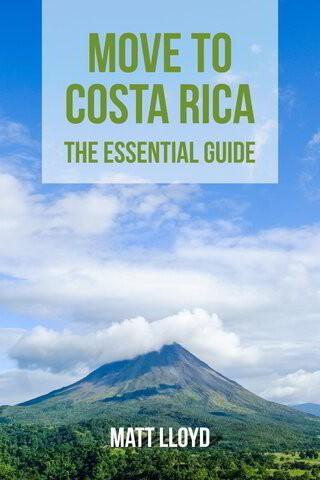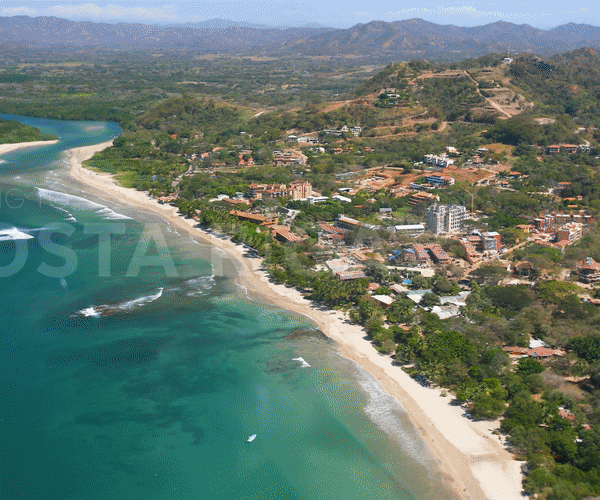So, you've heard many wonderful things about Costa Rica and what ex-pats living here love about it, right? If you’re considering a move to Costa Rica, it’s prudent to have information from different perspectives to make the best decision for you.
While Costa Rica, with its outstanding natural beauty, friendly culture, and welcoming "Pura Vida" attitude, has long captured the hearts of travelers and ex-pats seeking a slice of tropical paradise, there are those for whom the allure of Costa Rica may not resonate as strongly.
While my husband and I have loved our time in Costa Rica, we know people who have not and returned to their home country. Here are five key reasons why Costa Rica might only fit some. And while Costa Rica's charms are undeniable, it's crucial to consider these aspects before embarking on a journey to finding your new home.
While my husband and I have loved our time in Costa Rica, we know people who have not and returned to their home country. Here are five key reasons why Costa Rica might only fit some. And while Costa Rica's charms are undeniable, it's crucial to consider these aspects before embarking on a journey to finding your new home.
1) Cost of Living and Economic Realities

While Costa Rica boasts a lower cost of living than many Western countries, it's important to note that expenses have been steadily on the rise, particularly in popular expat areas.
Real estate prices, in particular, have surged, making it more challenging for budget-conscious individuals or those on fixed incomes to find affordable housing. Additionally, day-to-day expenses can add up, especially for imported goods.
Those accustomed to a more frugal lifestyle or seeking the utmost financial efficiency might find their resources stretched thin in certain parts of the country.
*NOTE — We live in Guanacaste near the beach, and the real estate prices have easily doubled in the last two years.
.
2) Cultural and Language Adjustment
The "Pura Vida" lifestyle is a defining feature of Costa Rican culture, emphasizing relaxation, community, and gratitude.
However, this transition might prove challenging for individuals accustomed to a fast-paced urban environment or a different cultural mindset.
In Costa Rica, convenience can’t be expected. Trips to the bank, paying bills, and going shopping can take much longer than North Americans are used to.
In Costa Rica, convenience can’t be expected. Trips to the bank, paying bills, and going shopping can take much longer than North Americans are used to.
Other than in San Jose, there are no big malls to make your “one-stop shopping” experience. Here, we drive from store to store to get what we need, and often, we have to substitute what we’re looking for with something else. If accessibility to everything you want matters, you may be disappointed in your life in Costa Rica.
Language barriers can also be a consideration. While English is often spoken in tourist areas, Spanish is the primary language. Those not prepared to engage with locals in their native tongue might find specific interactions frustrating or isolating.
*NOTE— We haven’t learned a lot of Spanish and mostly understand and can speak the pleasantries. We get by. However, there is an element of familiarity and close relationships that can’t be built, and I miss this.
3) Remote and Limited Access

While Costa Rica's natural beauty is a significant draw, it's important to remember that accessing some of these remote and pristine areas may require navigating rugged terrain or enduring lengthy journeys.
For individuals with mobility issues or a preference for easily accessible amenities, the appeal of off-the-beaten-path exploration might be dampened. Additionally, while improving, the country's infrastructure may only sometimes meet the expectations of those accustomed to seamless modern conveniences.
*NOTE — We live 164 miles from San Jose, the capital of Costa Rica. By Waze, this drive takes 4:53 hrs. In North America, at an average speed of 60 mph, this drive would take about 2.5 hours. This drive takes time due to many things: two-lane roads, potholes, construction, slow trucks, etc. To live here and enjoy it, you must be willing to not be in a hurry. Ever.
4) Environmental and Climate Considerations

Costa Rica's tropical climate is a dream for many, but it may not be everyone's cup of tea.
The country experiences distinct wet and dry seasons, and while the lush rainforests owe their vibrancy to ample rainfall, the constant humidity might prove uncomfortable for some.
Due to rain and high humidity, mosquitoes and other insects can also be a nuisance in certain regions. Living in Costa Rica could be problematic if you dislike bugs and using bug spray.
Moreover, concerns about environmental sustainability and eco-friendliness are central to the country's ethos. Those less inclined to adapt to conservation-minded practices may be at odds with local attitudes.
5) Distance from Family and Familiarity
Making Costa Rica a permanent or semi-permanent home often entails leaving behind family, friends, and familiarity with one's home country.
The distance can lead to feelings of isolation or homesickness, particularly for those deeply connected to their roots. Additionally, access to medical care or specialized services might be limited in certain areas, leading to concerns for some individuals, especially retirees.
Conclusion
Costa Rica's charm and allure are undeniable, drawing in many admirers worldwide. However, the idyllic image of this tropical paradise might only resonate with some.
The cost of living, cultural adjustments, limited access to specific amenities, climate considerations, and the distance from familiar comforts are all factors that can influence whether Costa Rica is the right fit.
Before embarking on a journey to this captivating country, assessing these aspects and considering how well they align with individual preferences and priorities is essential.
Pura Vida! 🌺




